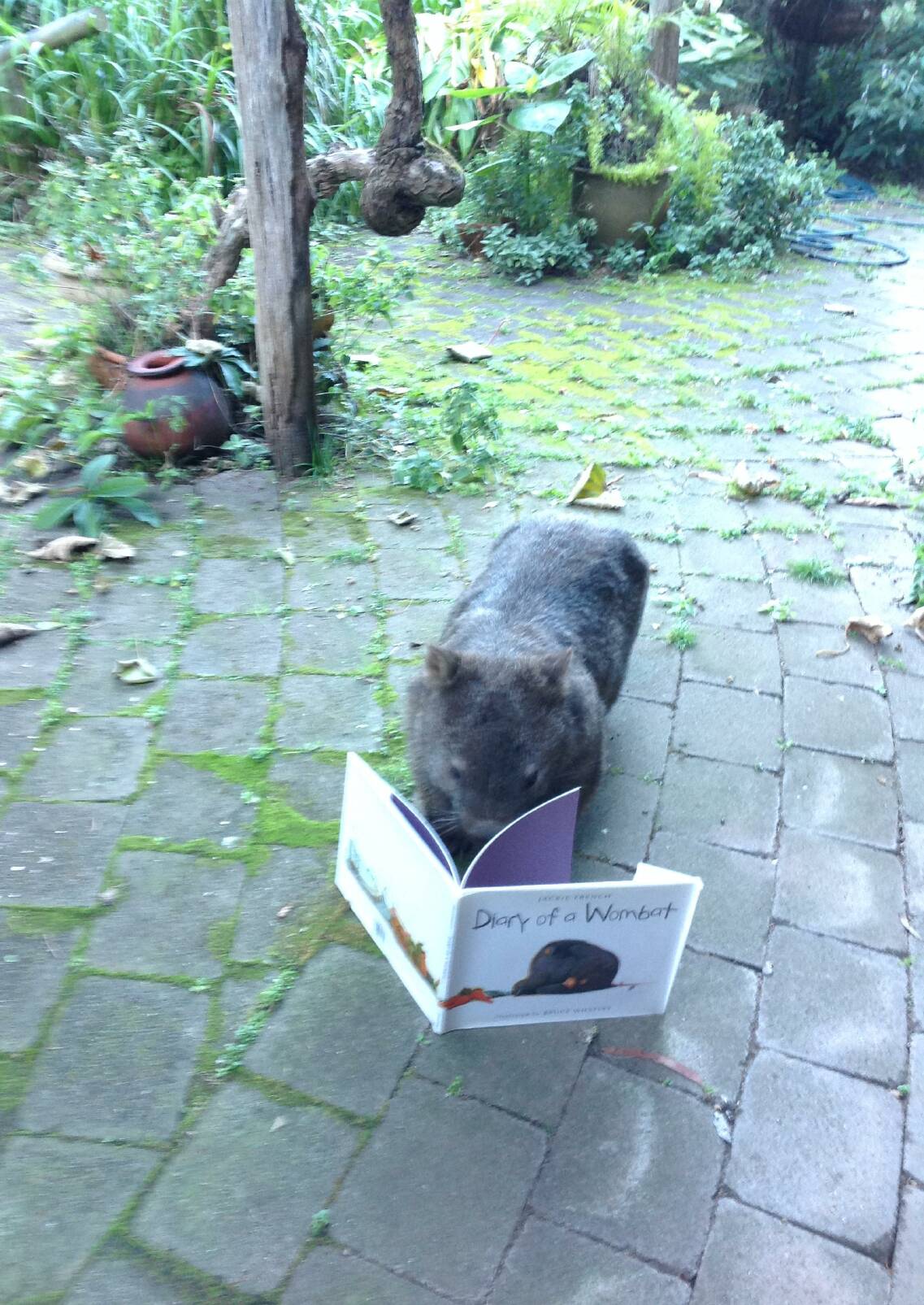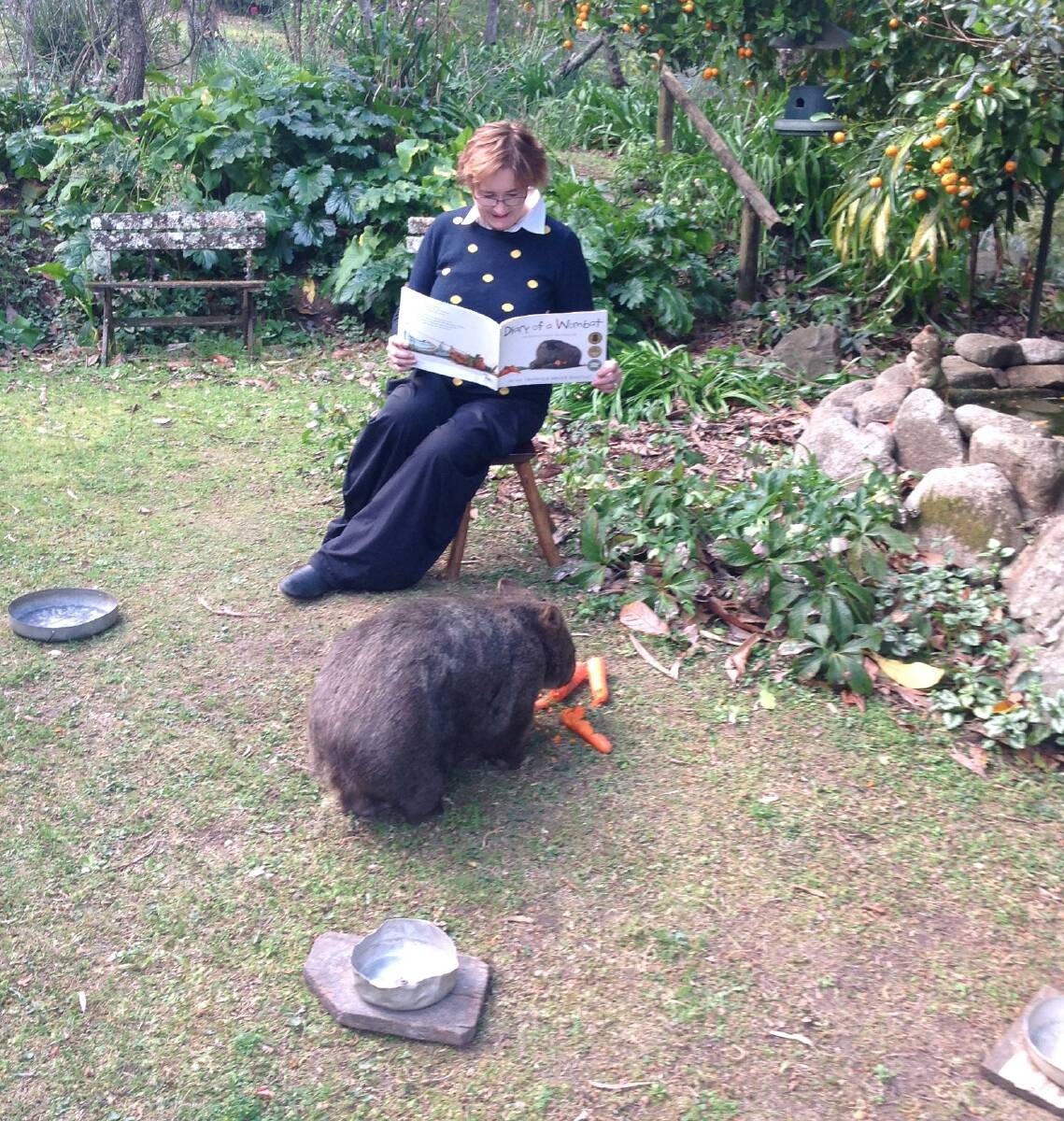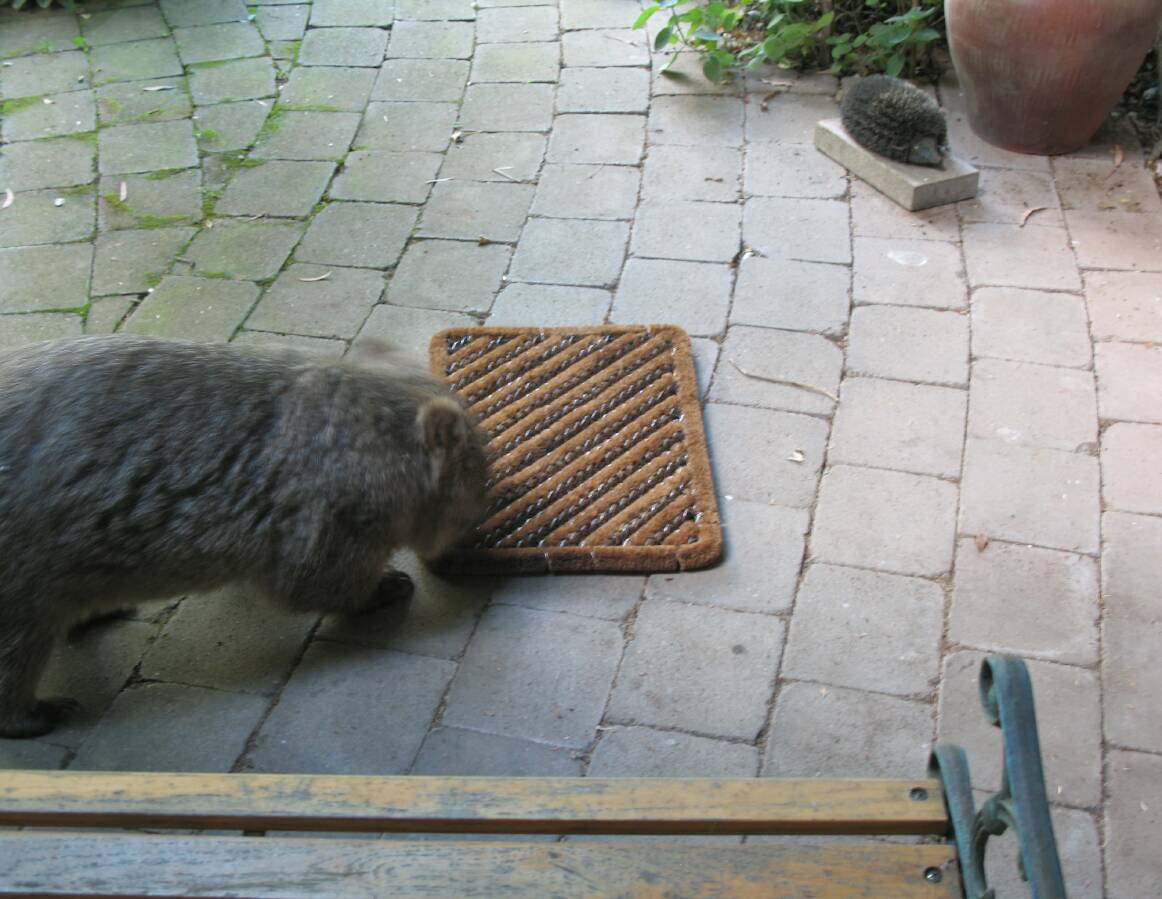Jackie French is extraordinary. She is one of Australia's most successful writers - and she's dyslexic.
And she is an honorary wombat (part-time, she points out).
She lives in what feels like another world, in a house enclosed by deep and dark forest, 50km to the east of Canberra. There is no mobile phone coverage. Google maps can't get you there because old dirt roads have been washed away.
When she walks out of the door at night, the wombats are there. By day, they sleep under the house. She talks about them as though they are family.

There was Ricky, for example. She got to know him and then she says, "Ricky went bush". And that seemed to be the end of the friendship.
But during the drought, he came back. "Eighteen months later, there was Ricky at the back door with three strange wombats who looked embarrassed," she says.
"It was obvious he had said to them, 'Come back with me. I know where there's food'. Teenage sons do that. They turn up with a mob of mates."
And then Ricky went bush again - and turned up again. "He'd lost an eye. He didn't want food. I think he just wanted to say, 'Hello'," she says.
It's not true to say that she loves wombats - she disputes that word, preferring "adoration" and "fascination". "They are completely non-human. I don't know why a few wombats have decided to become friends with a human, a creature which is so different," she says.
A large part of her published oeuvre features wombats.
She's published more than 200 books for children and adults. They have won more than 60 awards and sold millions of copies. They have reached the New York Times best-seller list.
But her wombat books for very young children are the star turn. They combine her words with charming illustrations by Bruce Whatley. The first, Diary of a Wombat in 2002, flew off the shelves.
To celebrate the anniversary, she produced Diary of a Rescued Wombat - "This is the (almost) true story of one small wombat who learnt how to train her humans - and inspired the internationally best-selling picture book Diary of a Wombat."
She started writing gardening books and then in 1991, she published a collection of short stories called Rain Stones. She was hard up and needed the money to register her car. At the time, she was living in a tin shed with a black snake named Gladys and a wombat called Smudge.








At the moment, she has four books either recently published or about to be published.
And all written by a woman with dyslexia.
At school in Brisbane, she was a slow reader but a few teachers realised she was bright. Dyslexia is not about intelligence. It is just a difficulty in recognising the shape of words.
Her first memory of school was of the terror at having to read one word aloud. "To this day, I still find reading single words, and handwriting difficult, but I've learnt to adapt," she says.
She names those teachers to honour them: Miss Davies, Mr Sullivan, Mr Atwell and Mrs Gillian Pauli ("the one who had the most unconditional support and had the greatest influence").
"She would bring me armfuls of books. She went to enormous trouble to order in the books she thought I should be reading." And her grandmother and great grandmother were big readers who passed on the love of books.
Dyslexia can be overcome. She still doesn't quite know how she manages to read now. "The simplest and most honest answer is, 'I don't know'. I suspect it's a combination of word recognition and learned blocks of common text - I do often read single words incorrectly," she says.
She tends to write in the afternoons. "I write very quickly. I write and rewrite but I can't recognise my mistakes. Filling in forms is torture," she says.
She now helps people with dyslexia. "The first thing I tell them is, 'Of course you can do it'. I have never known anyone who cannot read - even if it takes far longer or even complex technology to make it possible," she says.
"Show kids how to find 'the magic book' - the one they love so much they will go to extraordinary lengths to find out what comes next."
She writes six books a year with that aim. Kids like them. Adults, too. Wombats can't read.
We've made it a whole lot easier for you to have your say. Our new comment platform requires only one log-in to access articles and to join the discussion on The Canberra Times website. Find out how to register so you can enjoy civil, friendly and engaging discussions. See our moderation policy here.







